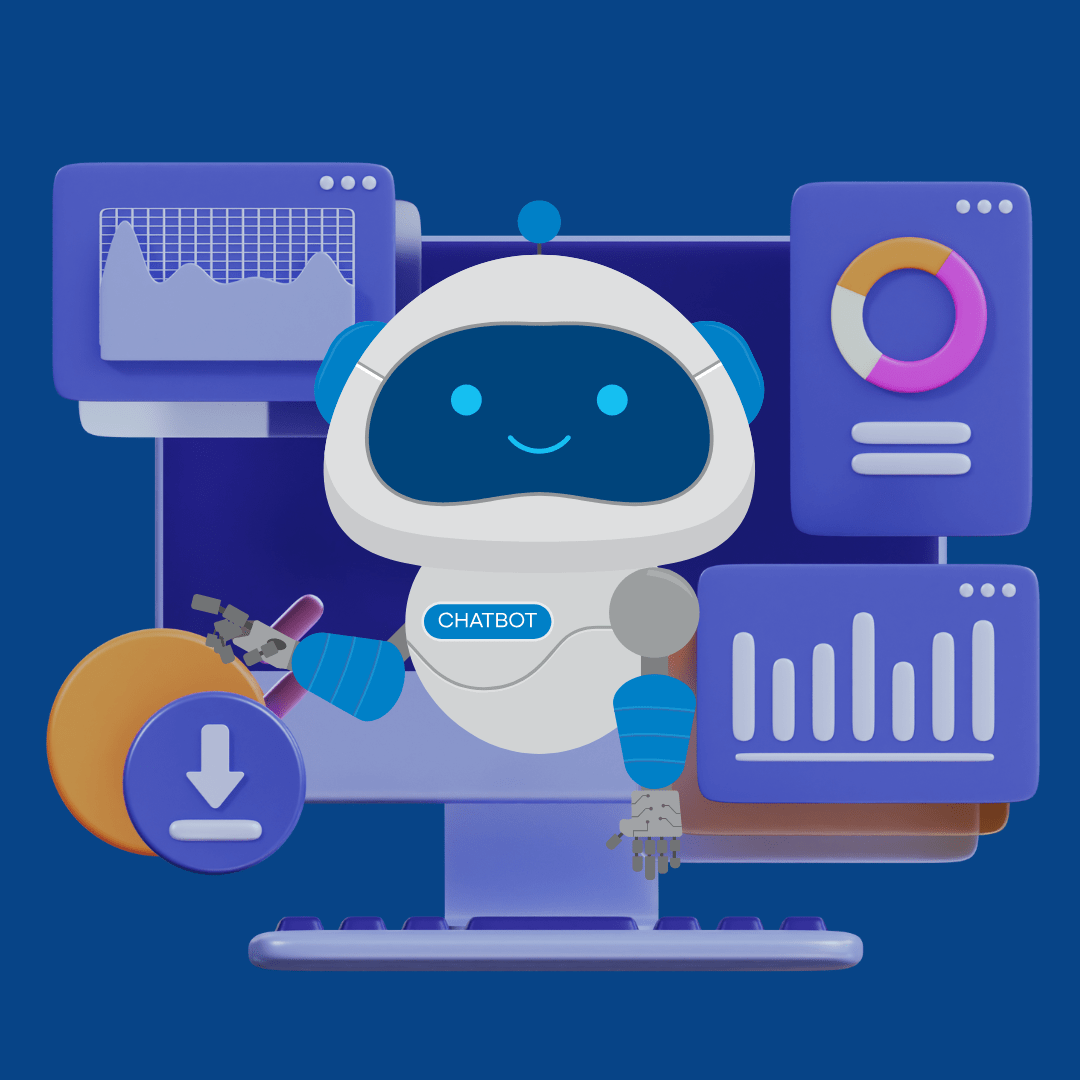
Introduction
In the age of digital transformation, artificial intelligence (AI) is revolutionizing market research. AI-powered chatbots, in particular, are emerging as game-changers by enabling businesses to collect real-time consumer insights efficiently. These chatbots help brands interact with customers, gather feedback, analyze sentiment, and optimize decision-making—without the need for extensive human intervention.
In this blog, we explore how AI-powered chatbots are reshaping real-time market research, their benefits, and best practices for implementing them effectively.
The Rise of AI-Powered Chatbots in Market Research
Market research has traditionally relied on surveys, focus groups, and third-party data sources. However, these methods often suffer from delays, biases, and high costs. AI-powered chatbots offer a solution by providing instant access to real-time consumer insights, improving both efficiency and accuracy.
Chatbots can interact with users via text or voice, collect qualitative and quantitative data, and provide instant feedback to businesses. With the integration of machine learning (ML) and natural language processing (NLP), chatbots are becoming more sophisticated in understanding customer preferences and behaviors.
Key Benefits of AI-Powered Chatbots in Market Research
1. Real-Time Data Collection
Unlike traditional surveys that take days or weeks to complete, chatbots gather real-time insights. They can conduct automated conversations with customers on websites, mobile apps, or social media platforms, ensuring an up-to-date data collection.
2. Higher Engagement Rates
Many consumers ignore long surveys or emails. However, chatbots provide a conversational and interactive approach that increases engagement. By simulating human-like conversations, chatbots encourage customers to share their opinions more openly.
3. Personalized Consumer Insights
AI-powered chatbots can adapt their questions based on user responses, creating a more personalized experience. This leads to deeper insights into individual consumer preferences, improving targeted marketing strategies.
4. Cost and Time Efficiency
Traditional market research methods require significant resources, from hiring survey teams to managing data processing. Chatbots automate these processes, reducing operational costs and enabling businesses to allocate resources more effectively.
5. Sentiment Analysis for Deeper Understanding
Advanced chatbots use NLP to analyze consumer sentiment in real time. By interpreting emotions, opinions, and tone, businesses can gain deeper insights into customer satisfaction and brand perception.
6. Seamless Integration with Analytics Tools
AI chatbots integrate easily with analytics platforms like Google Analytics, CRM systems, and BI tools, allowing businesses to visualize and interpret data effectively. This enhances decision-making by providing actionable insights.
Applications of AI-Powered Chatbots in Market Research
1. Automated Surveys and Feedback Collection
Chatbots can replace traditional survey forms by engaging customers in real-time conversations. Instead of static questionnaires, they ask adaptive questions based on the customer’s previous responses, leading to richer insights.
2. Social Media Listening
Brands can deploy AI chatbots on social media to monitor conversations, analyze sentiment, and gather consumer feedback instantly. This helps businesses stay ahead of trends and customer concerns.
3. Competitor Analysis
Chatbots can collect and analyze competitor mentions across various online platforms. Businesses can use this data to refine their strategies and understand their market positioning.
4. Product Testing and Concept Validation
Before launching a new product, brands can use chatbots to gauge customer reactions. By engaging potential users in a conversation, businesses can determine whether a product concept is viable.
5. Customer Support Insights
Customer service chatbots not only assist users but also collect valuable insights. Analyzing chatbot interactions helps businesses identify common pain points and improve products or services accordingly.
Best Practices for Implementing AI Chatbots in Market Research
1. Define Clear Research Objectives
Before deploying a chatbot, businesses should define their goals. Are they collecting customer satisfaction data, testing a new product, or analyzing competitor trends? Clear objectives ensure that chatbots ask the right questions and gather relevant data.
2. Design Conversational and Engaging Chatbots
Avoid robotic or monotonous conversations. Use NLP and machine learning to create chatbots that understand context, ask follow-up questions, and keep users engaged throughout the interaction.
3. Ensure Data Privacy and Security
Consumers are increasingly concerned about data privacy. Brands must ensure that chatbot interactions comply with GDPR, CCPA, DPDPA and other data protection regulations. Transparency about data usage is crucial for gaining user trust.
4. Continuously Train and Improve Chatbots
AI chatbots learn from interactions over time. Regular updates and machine learning enhancements ensure they remain accurate and effective in gathering insights. Businesses should analyze chatbot performance and refine their strategies accordingly.
5. Integrate with Other Data Sources
Combining chatbot-generated insights with other data sources, such as website analytics and CRM systems, enhances the overall accuracy of market research. Businesses can cross-validate findings for a more comprehensive understanding of consumer behavior.
Challenges and Limitations of AI-Powered Chatbots
1. Limited Understanding of Complex Queries
Despite advancements in NLP, chatbots may struggle with complex or ambiguous responses. Businesses must fine-tune chatbot algorithms to improve accuracy.
2. Risk of Biased Data Collection
If not properly designed, chatbots may ask leading questions or misinterpret responses, leading to biased results. Ensuring diverse training data and unbiased question framing is essential.
3. User Resistance to AI Interactions
Some users prefer human interaction over AI-driven conversations. To address this, businesses can offer a hybrid approach, where chatbots handle basic queries while human agents step in for complex issues.
Future of AI-Powered Chatbots in Market Research
The future of chatbots in market research looks promising. With advancements in deep learning and AI, chatbots will become even more intuitive and capable of understanding consumer intent at a granular level. Voice-based AI chatbots are also expected to gain traction, allowing businesses to gather insights through natural conversations.
Additionally, AI-driven predictive analytics will enable businesses to forecast trends based on real-time chatbot interactions. This will enhance strategic planning and improve overall customer experience.
Conclusion
AI-powered chatbots are transforming the landscape of market research by enabling businesses to gather real-time insights efficiently and cost-effectively. Their ability to engage customers, analyze sentiment, and integrate with analytics tools makes them invaluable for brands looking to stay ahead in a competitive market.
By implementing best practices and continuously improving chatbot capabilities, businesses can harness the full potential of AI-driven market research and make data-driven decisions with confidence.
Would you like to explore AI chatbots for your market research strategy? Now is the time to leverage this technology and unlock deeper consumer insights!
1. What are AI-powered chatbots in market research?
AI-powered chatbots are automated virtual assistants that use artificial intelligence (AI), machine learning (ML), and natural language processing (NLP) to interact with consumers. They collect real-time insights by engaging users in conversational surveys, analyzing sentiment, and providing instant feedback.
2. Can AI chatbots replace traditional surveys?
While AI chatbots offer a more engaging and efficient alternative, they may not completely replace traditional surveys. Instead, they complement traditional methods by providing real-time data, higher response rates, and personalized interactions.
3. Are AI chatbots suitable for all industries?
Yes, AI chatbots can be used across industries such as retail, e-commerce, healthcare, finance, travel, and entertainment. Any business that relies on customer insights can benefit from chatbot-driven market research.
4. How do chatbots analyze consumer sentiment?
AI-powered chatbots use Natural Language Processing (NLP) to detect emotions and opinions in text-based conversations. They classify sentiment as positive, negative, or neutral, helping businesses understand customer perceptions.


